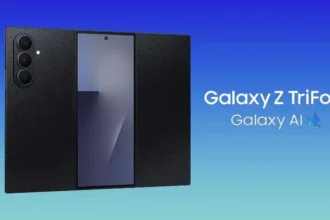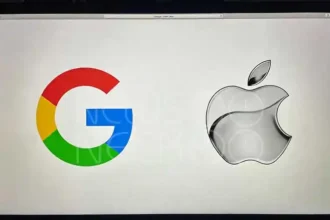The Next Level: How AI is Set to Radically Reshape the Multi-Billion Dollar Gaming World
Gaming billionaire Min-Liang Tan has a bold prediction for the industry that entertains nearly half the world’s population: artificial intelligence is not just an upgrade, it’s a complete system reboot. From how games are built to how we play them, nothing will be the same.
SINGAPORE: Imagine you are stuck on a difficult level in your favorite video game. Instead of searching online for clues, you simply ask the game for a hint. An AI, which has been quietly watching your every move, offers you a perfect, personalized tip to help you succeed.
This is not a scene from a science fiction movie. According to one of the gaming industry’s most influential leaders, it is the very near future.
In an exclusive interview with CNBC, Min-Liang Tan, the billionaire CEO and co-founder of gaming hardware giant Razer, declared that AI is poised to “completely disrupt everything” across the global gaming ecosystem. This disruption will touch every single part of the industry, from the developers who spend years building worlds to the 3.6 billion players who explore them.
“For us at Razer, the way we see it is that Artificial intelligence is going to completely disrupt everything, or change everything in gaming,” Tan told CNBC’s “Beyond the Valley” podcast on the sidelines of Singapore’s SWITCH conference. “Game developers will now be able to use AI tools, and then you’ve got game publishers that will now distribute, market new games with AI tools … For gamers, the AI tools will be able to change things, in terms of the way they play.”
This prediction carries significant weight. The global gaming industry generates nearly $189 billion in annual revenue, according to research firm Newzoo. For Tan, whose company built its reputation on high-performance mice, keyboards, and headsets, the next frontier is not just the hardware in your hands, but the intelligent software that guides your experience.
Your Personal AI Gaming Coach
Razer is already putting this vision into practice. The company is developing a tool called Game Co-AI, which acts like a personal trainer for gamers. Using a technology called computer vision, the AI can essentially “watch” how you play in real-time.
Struggling to defeat a powerful boss? Game Co AI can analyze its attack patterns and suggest the best moment to strike. Can’t find a hidden path? The AI can point you in the right direction. It combines this visual data with other public game information to offer strategic advice that is tailored specifically to your play style.
A beta version of this high-tech coach is scheduled to be available later in 2025. This technology also opens up a fascinating debate in the world of professional, competitive gaming, known as esports.
“We will not have AI running, I think, during a game itself, but what about at the point of time of training?” Tan said. He sees a strong appetite among professional players to use AI as a training tool to analyze their performance and sharpen their skills, potentially coaching the next generation of esports stars. “There’s a lot of excitement in respect of this,” he added. “The opportunities are limitless.”
You Might Like it: AWS Outage 2025: How One Glitch Shook the Internet
A Revolution in Game Development
The AI transformation goes far beyond the player’s screen; it is set to overhaul the very way games are made. One of the most expensive and time-consuming parts of game development is Quality Assurance (QA) the arduous process of finding and fixing bugs, or glitches.
Traditionally, this involves large teams of human testers playing the game for thousands of hours, meticulously noting every crash, every graphical error, and every broken quest.
Tan describes this traditional model as “a whole bunch of people sitting in a room,” identifying bugs one by one. This process, he revealed, can eat up 20% to 30% of a game’s total development budget and a similar chunk of its timeline.
Razer’s answer is an AI QA Companion. This tool can automatically play the game, find bugs, and log them into a system. Soon, Tan says, it will go a step further and even suggest how to fix those bugs. This doesn’t mean mass layoffs for human testers, he argues, but rather a shift in their role. By automating the tedious work of finding simple bugs, human testers can focus on more complex issues, like evaluating the game’s overall fun factor and balance, making them more effective and productive.
Also Read: AI Boom vs Main Street: America’s Uneven Economy
The Human Touch in an AI World
This rapid rise of AI inevitably leads to a critical question: Can a computer truly be creative? Can AI design a hit game on its own?
Strauss Zelnick, the CEO of Take-Two Interactive, the company behind the colossal Grand Theft Auto series, recently stated that he believes AI cannot rival human game developers. Tan’s view is more nuanced. He sees AI as a powerful assistant, not a replacement for human genius.
He predicts that within a year, the industry will be “talking about some of the new, exciting games that have been built with AI.” These tools will empower smaller, indie studios to create games that were previously only possible for giant teams with budgets in the hundreds of millions.
“The human creativity still needs to be there,” Tan emphasized. AI will handle the “tedious” tasks, freeing up developers to focus on the big, creative ideas that make games memorable. He envisions a future where a small, passionate team can use AI to build a world that rivals those created by armies of developers.
A Legacy of Innovation
Tan’s perspective is rooted in a history of disrupting the status quo. He co-founded Razer in 2005 with Robert Krakoff, and the company quickly made a name for itself with the Boomslang, a high-precision gaming mouse named after a deadly snake.
“For a gamer, the mouse is everything. It’s an extension of your arm,” Tan explained. “The more precise your mouse is, the more likely you are going to be able to get frags,” he said, using gaming slang for in-game kills.
From its dual headquarters in Singapore and Irvine, California, Razer grew into a global brand, going public on the Hong Kong stock exchange in 2017 before going private again in 2022. Throughout its journey, the company’s mission has been to enhance the gaming experience.
Now, Tan believes the AI revolution starting in gaming will ripple out across the entire tech world. “A lot of what’s happening in the tech industry was born from gaming, and I believe that a lot of what will happen for AI will also be born from AI gaming,” he said.
The message from the front lines of the gaming industry is clear: AI is not just a new feature to be added. It is a fundamental force that is about to redesign the game from the inside out. For players and creators alike, the next level is intelligent, and it’s loading now.
Author: Yasir Khan
Date: 01 Nov, 2025
For More Updates, Visit Newsneck














One Comment
Your point of view caught my eye and was very interesting. Thanks. I have a question for you.